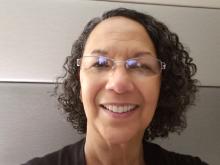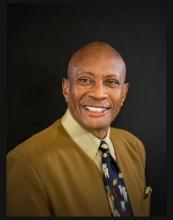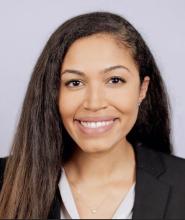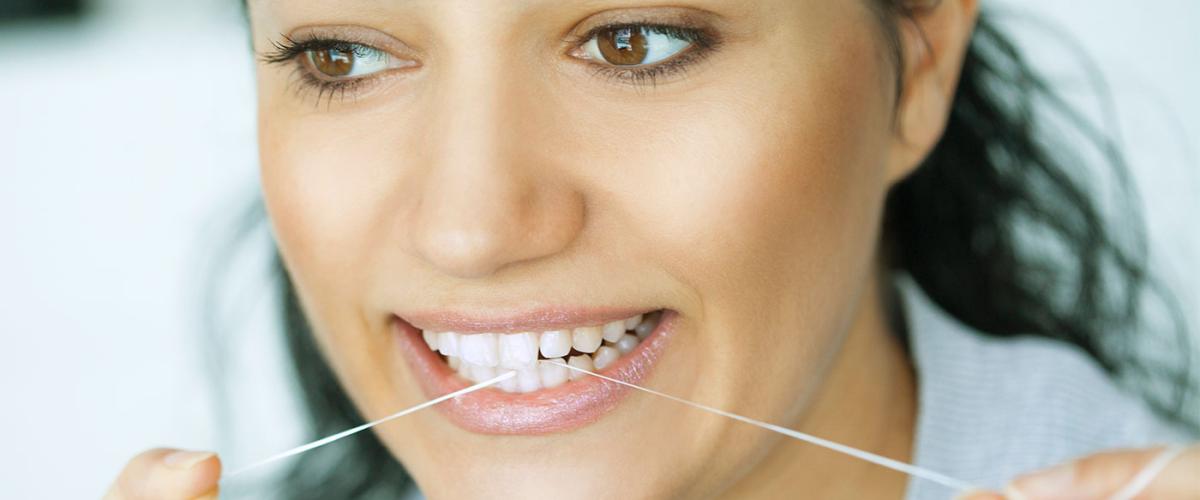In celebration of Black History Month, we’re sharing the insights, achievements and words of wisdom from Black alumni who are shaping the future of dentistry.
Madge Potts-Williams, DDS (DEN ‘81)
Lead Dentist, Manatee County Rural Health Services, Bradenton, FL
Consultant, CDCA-WREB-CITA (CWC)
practicing for 44 years
What are the most valuable skills you learned during your time at CWRU that you use in your professional life?
I graduated feeling very confident in my skills to care for my patients in private practice. The Preceptor Program allowed passionate dentists to mentor students and help them to grow into competent practitioners. I loved the Preceptor Program so much that I became one in 2002. I also gained my love for organized dentistry through my participation in the Student National Dental Association on a local and national level. This led to many years of leadership in the National Dental Association and ADEA.
How do you see the role of diversity evolving within dentistry, and how have you personally helped foster that change?
Diversity amongst medical professionals is more important now than ever. There are so
many mixed messages in this country that patients don’t know who to listen to or what
information to trust, especially regarding their health. I see that daily with patients who
speak Spanish, Russian, Creole and multiple Asian languages, all of which bring
different cultural values. Not to mention the scores of people who were born and raised
in this country who were mistreated when they sought medical help. People need to be
understood before they can begin to listen to recommendations from a stranger who
does not look, speak, live or think like them. This barrier has been repeatedly proven to
impact health outcomes. I have personally worked as a faculty member, mentor and an
organizer to promote the field of dentistry to the underserved population.
What initiatives or programs have you been involved in that aim to increase access to dental care for underrepresented populations?
I helped to develop the Jefferson J. Jones, D.M.D. Health Legacy of Cleveland Pre-
Dental Mentoring and Research Program when I was a faculty member at CWRU. I
served as faculty advisor to the SNDA at CWRU and LECOM School for Dental
Medicine. I was a member of the House of Delegates, Assistant Secretary, Secretary
and Chairman of the Board of Trustees of the National Dental Association. I served the
Board of Directors of the National Dental Association Foundation as Treasurer,
Secretary, and Scholarship Committee member giving scholarships up to $20,000 each.
I was chair of the ADEA Section on Minority Affairs.
How has your perspective on the overall field of dentistry changed since graduating?
Being a dentist is a sacred responsibility. We are not only guiding patients to improved
oral and general health but are entrusted to perform irreversible procedures in their
mouths. It can be a very lucrative field, but with that comes the temptation to focus more
on the profit and less on the patient. Technology has been a boom to provide more
accurate diagnosis and faster, and often more accurate, delivery of care, but nothing
takes the place of truly CARING for your patients first.
From where do you draw your biggest inspiration?
First, I am a Christian. I have been inspired by my parents who lived through difficult
days in this country to ensure that I was educated and secure. I have been inspired by
my mentors Jefferson J. Jones, DMD, who recruited me as a student with the assistance
of Francis M. Curd, DMD and James E. Hammond, DDS. Dr. Jones and Dr. Curd later
recruited me as a faculty member. I am inspired by the passion of Dean Kenneth
Chance to continue to advance the mission of our great school. I am grateful to the
members of the Forest City Dental Society who were like fathers to me when I was a
student, having lost my father my freshman year. I am grateful to the National Dental
Association for standing strong to promote diversity in the field of dentistry for 112 years.
Darrell Lewis Mayes, DDS (DEN ‘89)
Dental Director, Premise Health at Toyota Family Health Center, San Antonio, Texas
practicing for 35 years
What are the most valuable skills you learned during your time at CWRU that you use in your professional life?
The most valuable skills that I learned during my time at CWRU was determination, commitment and to “Never Give Up,” each of which I continue to use today in my professional life.
How do you see the role of diversity evolving within dentistry, and how have you personally helped foster that change?
Unfortunately, the role of diversity in dentistry is declining especially in the African-American and Hispanic populations. To date, there are approximately 3.8% of Black dentist in the U.S., and only 4.2% of Hispanic dentists in the U.S. Historically, there has been a decline in African American dentists in the U.S. Reasons could be attributed to preparation, financial reasons and opportunities. I have been very blessed and fortunate to have had several opportunities during my dental career of being honored as being the first Black dentist in several of my jobs. Although these accomplishments were an honor, to me personally, it would be a disappointment if I were to be the only Black dentist in these areas. I have been working at my current job as the Dental Director for a corporate company for the past 18 years, and yes, I was the first Black Dental Director of this corporation. I have also made it my purpose to identify a young African American female dentist that I have brought into the corporation to be my successor.
What initiatives or programs have you been involved in that aim to increase access to dental care for underrepresented populations?
Prior to my current position in these last 18 years, I worked in community health clinics for more than 16 years. I was even blessed to have had the opportunity of working as the Dental Director at the Community Clinic that my parents took me to when I was child. These were community clinics for the underserved, Medicaid community and low-income clinics. I worked with children and adults. I also handled implementing educational programs such as Baby Bottle Tooth Decay, Sealant Programs, Fluoride Programs and oral health care for early childcare, pre-school, and adults. We also provided a mobile dental unit to go out into the communities to educate and treat the patients.
How has your perspective on the overall field of dentistry changed since graduating?
My perspective on the overall field of dentistry has changed since graduating more than 30 years ago. When I graduated my biggest challenges were molar root canals and complete dentures. Today, new dental graduates are doing so much more, and modern technology has changed considerably. Dental treatment and technology have truly advanced a lot more, for the betterment of the dental profession.
From where do you draw your biggest inspiration?
My biggest inspiration comes from my Lord and Savior, Jesus Christ, for without Him I could not have done any of this. I was also inspired by my parents, the late J.L. and Eva G. Mayes, both of whom my prayers were always that they both be alive to see the completion of my Dental schooling and becoming a doctor. I thank God for my answered prayers. I graduated in 1989, and my dad passed away in 1996 and my mom passed away in 2014. I would like to recognize the late Mr. Phil Aftoora who was always there for me during my challenges while in dental school, from the first day of enrollment to the last day of graduation. To the late Mrs. Ruth Douglas-Jones and family, who adopted me as their own, and gave me a home away from home during my dental school career. To Dr. Deno Deloach who always lifted me up with a cheerful outlook, and would not allow me to feel down, even if I thought I was. Also, to Case Western Reserve University School of Dentistry, for giving this young African American man from Texas an opportunity to succeed in making my dreams a reality. Thank you.
Imani Behrens, DMD (DEN ‘22)
Pediatric Dentist, Dental Art Specialists, Chicago IL
Practicing for one year
What are the most valuable skills you learned during your time at CWRU that you use in your professional life?
One of the most valuable skills I gained at CWRU was the ability to collaborate with dental specialists, ensuring comprehensive patient care. The strong foundation in interdisciplinary teamwork has been essential in my practice, allowing me to confidently make referrals, seek specialist recommendations, and provide the best possible treatment for my patients.
Additionally, CWRU’s emphasis on interpersonal skills and working with diverse populations prepared me to connect with patients and their families, build rapport, and communicate with empathy. This training has helped me explain procedures clearly and confidently, fostering trust and creating a positive patient experience—something I rely on every day in my practice.
How do you see the role of diversity evolving within dentistry, and how have you personally helped foster that change?
Diversity in dentistry is evolving, but representation in pediatric dentistry remains limited. Simply being in this position as a minority woman is inspiring—patients from all backgrounds seeing someone who looks like them fosters trust and encouragement. Beyond that, I actively mentor aspiring dental students and future pediatric dentists, helping them navigate the challenges I once faced. It’s about overcoming barriers, providing culturally competent care, and inspiring the next generation to see themselves in this field.
What initiatives or programs have you been involved in that aim to increase access to dental care for underrepresented populations?
One way I’ve worked to increase access to dental care for underrepresented populations is by seeing Medicaid patients one day a week. In the Chicago area, there are long waitlists for dental care, and very few providers accept Medicaid, making it difficult for many families to get the treatment they need. By dedicating time to serving this community, I’ve been able to help bridge that gap, ensuring more children receive essential dental care despite financial barriers.
How has your perspective on the overall field of dentistry changed since graduating?
Since graduating, I’ve realized there’s no single way to practice dentistry—each dentist develops their own approach based on experience and patient needs. I’ve also learned the value of collaboration, relying on specialists whose expertise improves patient outcomes and enhances my own knowledge. Dentistry isn’t about doing everything yourself but knowing when to seek guidance to provide the best care.
From where do you draw your biggest inspiration?
I draw my biggest inspiration from my patients, colleagues, and mentors. Seeing the impact of quality dental care on a patient’s confidence and well-being reminds me why I chose this profession. I’m also inspired by the specialists I collaborate with and the mentors and clinical preceptors from dental school, whose skills and dedication continue to shape the way I practice today.







